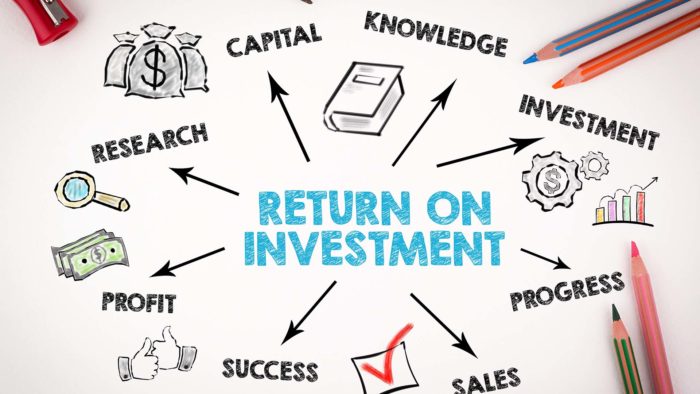A while back, I was on Facebook poking around while I waited for my plane to take off, and I noticed a post that said, “Do you hate marketing that doesn’t get an ROI?”
When I read this, I nearly laughed out loud for two reasons.

First, it is a silly question asked to get one — and only one — type of response. Second, it shows how little that person, and all the people who responded, understands marketing.
Here is the reality: If you insist on being able to track dollar-for-dollar ROI on all marketing, you will ALWAYS be a very small business — or you’ll soon be out of business
The truth is that you have to be willing to do things that don’t enable you to track ROI or you will not grow.
Whether you realize it or not, you likely currently implement marketing initiatives that you can’t track ROI on, but that doesn’t stop you from using them. For example, if you send any nurture or engagement emails, you aren’t able to track ROI on those.
Do you post to social media? Can’t track ROI on that. What about online reviews? Do you have any of those or manage them? Can’t track ROI on that either.
Do you manage a Facebook group? You guessed it: no 100% ROI tracking on that.
How about those thank-you notes, gifts, or emails you send? Could you tell me your ROI on responding to emails, Facebook, Twitter, or LinkedIn direct messages?
You get the point. It will only get more difficult to track ROI as you adopt more nontrackable marketing strategies to stay competitive.
Enter The Relationship Economy
We have shifted from a transactional economy — where the flow of information was controlled by the business and only dished out to the customer on the business’s terms — to an economy where the consumer has nearly all the power due to the volume of choice they have for any product or service.

If you don’t spend time and money on some of the softer sides of marketing, where you’re building relationships and creating an amazing customer experience, you will lose. The relationship economy is in full force.
Consumers don’t just want to be sold an awesome product anymore; they also want to do business with a company that makes them feel good, one that shows they care about creating an amazing customer experience. Customers remember the companies that make an effort, and they almost always continue doing business with the ones that do.
Answer this question: What is the #1 thing required for any good relationship? If you answered with “communication,” you’re right. Without good communication skills, you’re screwed before you even begin a new relationship.
Most people understand this, but they operate their business as if the customer needs them more than they need the customer. So many businesses today only call or write when they want something. These businesses act like an estranged family member calling to hit you up for a loan: no communication until they want something from you.
The Solution Is Simple
So, what’s the solution? You need to give a damn. You need to stop insisting that every action you take be 100% trackable, especially since that isn’t the case now in your business, and you need to simply embrace that you MUST build relationships with both customers and prospects. If you’re unwilling to do that, you will lose this game. If you’re lucky, losing may only mean you don’t reach your full potential — but it easily could mean you lose it all.

The good news is that this doesn’t have to be difficult. It really is as simple as thanking customers when they buy, refer, or take some other positive action that benefits your business. It’s as simple as sending them useful content on a regular basis. Newsletters work well for this. When sending emails, don’t always include a sales pitch. Maybe even go wild and send emails that don’t have a link a few times a month! I know — it sounds ridiculous, but it’s time to take action with the intention of building long-term relationships with the people who keep your lights on.
The relationship economy is here. You don’t have to like it, but the market doesn’t care if you like it or not. To survive, you have to embrace it.
I’ll leave you with another thought. Being a good human and treating the people who literally put food on your table like more than just a dollar sign is not just good business — it’s also the right thing to do.






